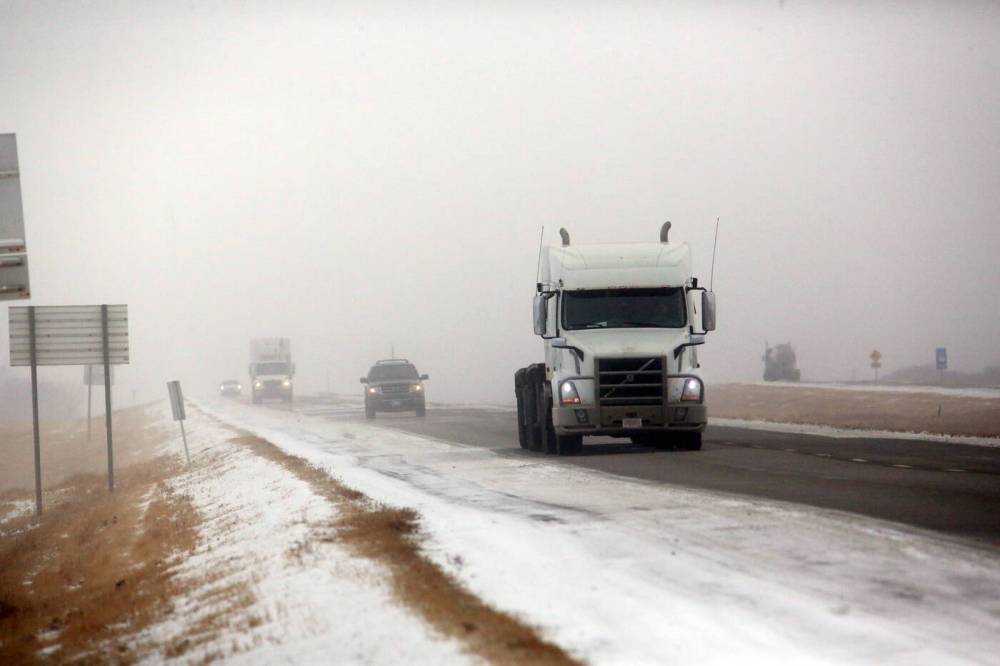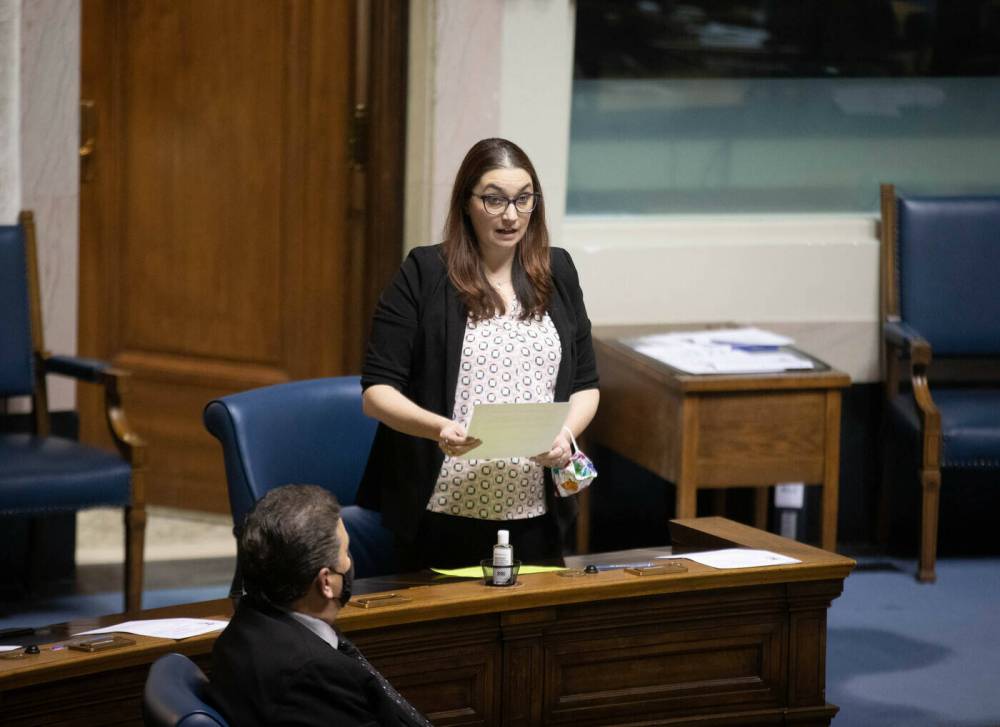Privatized snow removal raises alarm after MLA’s death
Advertisement
Read this article for free:
or
Already have an account? Log in here »
To continue reading, please subscribe:
Monthly Digital Subscription
$0 for the first 4 weeks*
- Enjoy unlimited reading on winnipegfreepress.com
- Read the E-Edition, our digital replica newspaper
- Access News Break, our award-winning app
- Play interactive puzzles
*No charge for 4 weeks then price increases to the regular rate of $19.00 plus GST every four weeks. Offer available to new and qualified returning subscribers only. Cancel any time.
Monthly Digital Subscription
$4.75/week*
- Enjoy unlimited reading on winnipegfreepress.com
- Read the E-Edition, our digital replica newspaper
- Access News Break, our award-winning app
- Play interactive puzzles
*Billed as $19 plus GST every four weeks. Cancel any time.
To continue reading, please subscribe:
Add Free Press access to your Brandon Sun subscription for only an additional
$1 for the first 4 weeks*
*Your next subscription payment will increase by $1.00 and you will be charged $16.99 plus GST for four weeks. After four weeks, your payment will increase to $23.99 plus GST every four weeks.
Read unlimited articles for free today:
or
Already have an account? Log in here »
Hey there, time traveller!
This article was published 10/01/2022 (1430 days ago), so information in it may no longer be current.
The tragic death of a Manitoba lawmaker in a collision last month has renewed longstanding concerns about the quality of privatized snow removal.
“It seems that it’s quite haphazard, and that’s where these things are starting to fall through the cracks,” said Jesse Hajer, an economics professor at the University of Manitoba.
Hajer detailed the PC government’s contracting out of infrastructure in a report he co-authored last year for the left-leaning Centre for Policy Alternatives.

The report is based on staffing data, notices of public tender, as well as university-vetted interviews and polling of frontline employees.
It included anecdotes noting a decline in the frequency and quality of services such as snow clearing in rural areas.
Staff suggested that public crews must often redo snow-clearing jobs after shoddy work by private companies, whom the province pays based on kilometres travelled, resulting in more work for government-paid staff.
Those anecdotal reports reflect grievances from northern municipalities, who argue roads have become a lot more dangerous over the past five winters.
Hajer said he’d rather assess whether that’s true by looking at hard data on the quality of snow-clearing and associated collisions, but that doesn’t seem to exist in any real detail, nor do any cost-benefit analyses.
Thus his team surveyed 124 workers, who represent about one-tenth of frontline infrastructure staff in roads such as highway repair, operating airports and snow clearing.
Many at Manitoba Infrastructure spoke about chronic short staffing, with hundreds of positions left unfilled.
“There has been a huge loss in institutional memory (and) knowledge, with respect to how these services work and the nuances of a specific service, or the structure of the industry and relationships with private contractors,” he said.
Hajer said provinces can successfully outsource services when they closely measures results, particularly when there is widespread demand for a service that creates economies of scale.
He gave the example of the province paying a contractor to plow a road, along which multiple businesses pay that person to clear their parking lots.
But that’s not what seems to be happening across rural Manitoba.
“It’s not like there is a strategic analysis done with respect to merging units, and doing it in a way that is more efficient or logical,” Hajer said.
“At a fundamental level, regardless of what the model is going to be … you are still going to need a well-staffed and experienced public service to oversee that system.”
Infrastructure Minister Reg Helwer was unavailable for an interview last week. Instead, his office said the government is focused on working with municipalities to save costs in order to fund upgrades to equipment.

“The province has made successful progress in modernizing and improving infrastructure investment, planning and procurement to ensure the best value for Manitobans,” reads a provided statement.
“The province continues to evaluate and transform its practices to ensure resources are available to fulfil its functions.”
On Dec. 9, 2021, Thompson MLA Danielle Adams died after a collision on a remote stretch of Highway 6, which local leaders say has had inadequate snow clearing for years.
Northern mayors say this results in long stretches of open highway where drivers are forced to stay in the middle of the road to avoid snowdrifts.
People familiar with the crash that killed Adams have said road conditions are a potential contributor, saying the highway had only been partially cleared, either by a grader or by semi-trucks that make tracks in unplowed snow.
Adams had set out on the roads at mid-morning, a time that northerners would expect to be the safest for driving to Winnipeg.
Local leaders have pointed to the Hajer’s report, which came out last August, but he stressed he’s only read about the collision and can’t assess whether snow clearing or privatization were a factor.
Yet he noted that workers he interviewed often expressed a concern that various accidents might have not happened if the roads had been cleared sooner.
“This is always an issue when it comes to investments in public services that have such a clear tie to public safety,” Hajer said.
“These really are decisions that have life and death consequences,” he said.
dylan.robertson@freepress.mb.ca
CCPA report on privatization of snow clearing and infrastructure roles





